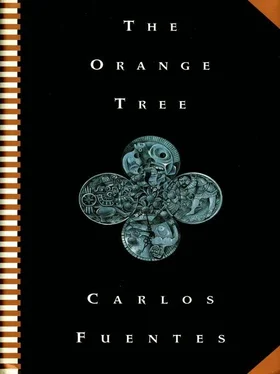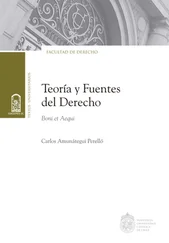“Great calamities,” I tell him, “are the foundation for great glory.”
“Shit,” he says.
* * *
WE, the women of Numantia, always knew our men were willing to die for us and our children. But we did not know exactly how willing we were to die for them. The siege lasted eight months. Soon our grain, meat, and wine were all used up. We began licking boiled leather, then eating it. From there, we went on to the bodies of those who’d died a natural death. We vomited: the sick flesh made us nauseous. We are afraid: when will we begin to eat the weakest among us? An old man gives us a lesson. He commits suicide in the main square so we can eat him without having to kill him. But his flesh is tough, stringy, useless. The children need milk. That’s the only thing we don’t lack: our breasts are prodigal. But if we women don’t eat, soon there will be no milk for the children. At night we listen to the creaking of our own bones, which are beginning to crumble from within, as if their burial ground were our own flesh. There are no mirrors in Numantia. But we see our faces in those of the others. They are corroded faces, devoured by cold and scurvy. As if time moved forward by devouring us, consuming bit by bit our gums, our teeth, our eyebrows, and our eyelids. Everything is falling away from us. What do we have left? A strange tree in the center of the plaza. A long time ago, a repentant traveler, Genoese to be precise, passed by here and made a big show of planting some seeds in the center of the main square. He said time was slow and that distances in the world we were living in were great. It was necessary to plant and to wait for the tree to grow and give its fruit in five years. He told us not to worry about the cold. The best thing that could happen to this tree was for it to go through a cold spell from time to time. It was a tree that slept during the winter. The cold doesn’t hurt it. It flowers and bears fruit in spring. Its annual growth ends in autumn and it goes back to sleep during the winter. What is its fruit like? Identical to the sun: the color of the sun, round as the sun … The memory of those words did not console us. This was the last winter before the tree, after five others had died, was to bear fruit. Would we last until spring? We had no way of knowing. Time, we women say, has become visible in Numantia. Its ravages are visible in our mangy skin, our calluses, and the mushrooms of our sexes. We uselessly scratch our anuses to find out if there remains a crust of excrement to eat. Snot, the sand in our eyes. Everything is useful. The earth does not abandon us. We are planted in it. Our eyes tell us our granaries are exhausted. Our noses have stopped smelling bread; they’ve forgotten it. Our hands no longer touch grass, our ears no longer hear the noise of cattle. And the tree planted by the Genoese will only bear its round, golden fruit next summer. But the soles of our feet tell us that the earth has not abandoned us. The world has, but the earth hasn’t. We Numantine women make a distinction between the world and the earth. We are eating the men who kill themselves for our sake, so we can eat them. The men who remain alive howl with grief: for the death of their brothers, for the horror of our hunger. We speak to them. When we do, we remember we have not lost language. Earth and language. They sustain us. The bodies we devour together with our children are earth and language transformed. The men don’t understand that. They are ready to die for us and our children, but they think we are all dying and that nothing will be left alive. We disagree. We see the world disappear but not the earth, not language. We, men and women, weep for the extinction of our city. But we celebrate the enduring life of a clay pot, a metal cup, a funeral mask. The metallic head of a sheep, a stone bull: these are the only cattle left to us. Empty urns, barrels of dust: this is the bread and wine we leave behind. We women weep for the extinction of the city. We accept that the world dies. But we also hope that time will triumph over death thanks to wind, light, and the enduring seasons. We will not see the fruit of this tree. But the light, the seasons, and the wind will. The world dies. The earth undergoes transformations. Why? Because we say it does. Because we have not lost language. We bequeath it to the light, the wind, and the seasons. The world revealed us. The earth hid us. We return to the earth. We are disappearing from the world. We are returning to the earth. From there we shall come forth to haunt.
* * *
SHE saw the last men leave Numantia: mute, bearded, filthy. She saw the last horrified women, the last emaciated children. They gave up because they lost language. They forgot how to speak; they gave up. She, with her dead child in her arms, approached the sterile tree buried in the depth of winter. They awaited the promise of the fruit in vain. Damned tree, sterile fruit. She spreads her legs and screams with her child in her arms. She lets the fertile blood of her vagina, the fruit of her womb, the moist and red mass of her menstruation fall onto the sterile scrub.
* * *
YOU ask yourself if everything in the universe has an exact double. It’s possible. But now you know that even if it is true, it’s dangerous. As a young man, you walked through the stoa and the garden, the Academy and the Lyceum. But you always knew that through a crack in all those doors and windows in the Greek paideia our minds escape us when we are most certain we possess them. Your military life was as true and direct as an arrow. Your spiritual life proved to be tortuous and unforeseeable. Is there a god that synchronizes the two? Are the connections between the body and the mind only apparent — an illusion created by the gods to console us? Is reality only the sum total of physical events — I ride a horse, I attack a city, I love a woman? Are mental events only and always consequences of those material acts? Do we fool ourselves by thinking that it’s the other way around only because, occasionally, the mental state precedes the physical event for an instant, when in reality the physical event has already taken place?
Polybius sees you suffer because you can’t resolve this dilemma. He suggests to you that centuries will pass without anyone’s resolving it. Men will torment themselves trying to separate, conciliate, or suppress the two extremes of their cruel split: this is my body, this is my spirit. Are we pure physical event? Are we pure mental event? Are both one and the same thing? At Numantia, Scipio presented himself as an integral man, at peace with himself. A Roman cives. But something betrayed him. A game, a perversity, a character trait, an imagination: he duplicated Numantia in order, perhaps, to avoid duplicating himself. To be the complete, decisive, efficient general he showed himself to be.
You realize that Polybius is imagining what’s happening within the besieged city in order, perversely, to tell it to you. Perversely, but also charitably. The writer’s version, it goes without saying, is the one that passed into history. He was very clever. He established once and for all, at the very dawn of Roman historiography, that texts should never be quoted verbatim but interpreted. History is invention. Facts are imagined. Without fiction, neither you, Scipio, nor you, other readers, would ever know what took place inside Numantia. Unsatisfied imagination is dangerous and terrible. It leads directly to evil. We only hurt others when we’re incapable of imagining them. Which is why you wept one day before a Carthage in flames. Polybius tried to save you by giving you the imagination of your victory. Believe it. That is what happened. You’ve just read it. Your victims were flesh and blood. You didn’t fight against doubles, the phantoms of Numantia.
Читать дальше












